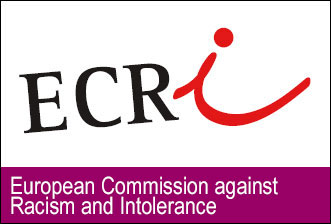The role of national Specialised Bodies in supporting local authorities in the fight against racism and intolerance
Seminar of the Council of Europe’s Anti-Racism Commission (ECRI) for national independent authorities combating racism and intolerance
Date: 22-23 May 2014
Venue: Strasbourg – Council of Europe, Agora Building
Organised by: the European Commission against Racism and Intolerance (ECRI) of the Council of Europe
Participants: representatives of member States’ independent authorities (specialised bodies) expressly entrusted with the fight against racism, xenophobia, antisemitism, intolerance and discrimination on grounds such as ethnic origin, colour, citizenship, religion and language (racial discrimination) at national level; members of ECRI; representatives of national Ombudspersons and national human rights institutions; local and regional authorities; as well as representatives of international and European organisations and networks.
Topic: ECRI’s monitoring reports have shown that local and regional authorities have substantial powers as legislators, as employers and service providers, and as funders of various programmes. In addition, they provide vital support to civil-society organisations representing different vulnerable groups. In view of this, national Specialised Bodies have a duty to boost local and regional authorities’ capacity to deal with racism and intolerance.
The principal aim of the Seminar was to collect promising examples of partnerships between specialised bodies and local and regional authorities in countering hate speech and racist and homo/transphobic violence and in facilitating the integration of vulnerable groups.
Specific objectives: The seminar addressed the following questions:
- Are there co-operation mechanisms in place between Specialised Bodies and local authorities?
- Are Specialised Bodies sufficiently decentralised and accessible at local level?
- Is their mandate sufficiently clear and are their means adequate for supporting local authorities?
- What is being done, in practical terms, by Specialised Bodies and local authorities to prevent and combat hate speech and violence at local level?
- Are these measures fit for their purpose and capable of affording the necessary protection to victims (actual and potential)?
- What steps are being taken by local authorities to promote vulnerable groups’ integration and respect for the principle of equal treatment in access to employment, housing, education and health care, as well as participation in local political life?
- What could the Specialised Bodies’ added value be?
- What is being done by Specialised Bodies to raise local authorities’ awareness of discrimination issues and what is their impact?
- How can international networks contribute to and provide support for co-operation between Specialised Bodies and local authorities?
Documents



